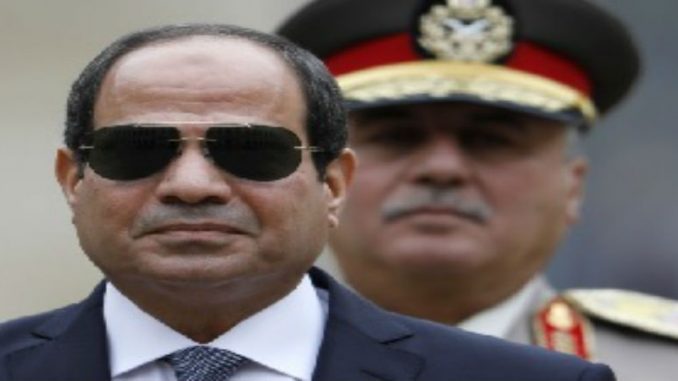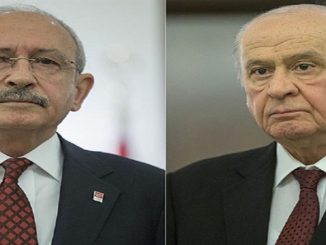
An Egyptian court has agreed to hear a challenge to the two-term limit for the presidency, a potential first step towards changing the constitution to allow Abdel Fattah el-Sisi a third term as president.
Al Sisi, a former general who has crushed virtually all political opposition, has said publicly he plans to serve only two terms but many Egyptians suspect he will try to stay on as president.
Ayman Abdel-Hakim Ramadan, a lawyer who supports al-Sisi, filed a court case demanding that Egypt’s parliament debate the two-term limit and consider changing it. The court has agreed to hear the case on December 23.
Mr. Ramadan made no secret of his hope the al-Sisi would stay in office indefinitely, as previous Egyptian leaders have done. “I love el-Sisi very much and I believe in him,” he said. “I want him president for life.”
Mr. Ramadan and his fellow petitioners wrote in their court filing that it would be “unfair to the great Egyptian people” if al-Sisi’s term was limited to eight years and he was not given enough time to deal with the country’s security and economic problems.
Egypt’s constitution was rewritten after the 2011 revolution which overthrew Hosni Mubarak, the longtime dictator of Egypt.
The constitution was then rewritten again after al-Sisi and other military leaders deposed Mohammed Morsi, Egypt’s first democratically elected president, in a military coup in 2013.
The latest version of the constitution, which includes the two-term limit on the presidency, was overwhelmingly approved by referendum in 2014.
Any changes to the constitution would have to be approved by parliament, which is dominated by al-Sisi’s supporters. The amendments would then have to be ratified in a national referendum.
Al-Sisi won a slide victory in re-lection in March with 97 percent. Egyptian security forces arrested and intimidated all serious challengers and human rights groups denounced the election as “farcical”.
Egyptian elections typically had attracted low turnout, particularly when the outcome was a foregone conclusion. After a string of would-be challengers was arrested, forced out or quit the race, the prospect of a virtual referendum — not unlike those held by autocratic rulers in the past — had clouded the election.
Moussa Mustafa Moussa, a little-known politician and a staunch supporter of al-Sisi, submitted his documents, just minutes before the election commission’s deadline. Moussa is the leader of the Ghad, or Tomorrow, party, which does not have a single seat in parliament.
The national election authority said that both al-Sisi and Moussa had met the requirements and declared them official candidates.
Moussa told a news conference that he did not intend to be a “prop” in the election. But until a few days ago, he was a staunch supporter of el-Sisi’s re-election.
It was obvious that al-Sisi wanted to show the world that there are elections going on in the country, but he didn’t really want a true competition.
The court case follows months of speculation that Sisi would seek an amendment to the constitution allowing longer terms and the removal of term limits.
While Mr. Ramadan appears to have acted on his volition in filing the lawsuit, the case was widely covered in Egyptian state media, suggesting governmental approval for the move.



